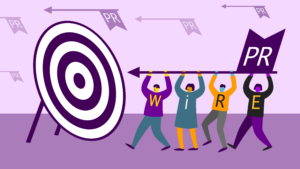How Do Ratings and Advertising Affect Story Pickup?
When I was in journalism school, the professors told me that the advertising department and the editorial department were separate at media organizations. They mentioned that a city editor will decide on a story’s merits if it should be reported. Then, the editors will assign it. However, when I interned at a television station and worked in the industry for 20 years, I found out reality doesn’t always match theory. While the two departments operate separately, they do influence each other. As a savvy public relations representative, you should know how they can help or hurt you.
Do you think that the advertising and editorial departments are separated? They influence each other. You need to know how they do that. Read this to understand how the media really works.
- How Advertising Helps – As a marketer, you want your brand in as many places as possible, so your client or company might want to advertise in the paper, online at the website and on television. You are spending a portion of your budget every month for media advertising. Now, you have an event you want to promote, so you send a press release. The editor is more likely to run a story on you. Why? Because 1. the editor knows your company because you have advertised regularly and 2. the chief operating officer pressures the editor to make this “client” happy.
- How Advertising Hurts – Your client has been advertising with your media conglomerate for a long time, but recently, it has been embroiled in a controversy. As the editor, you want to report that story. However, you aren’t allowed because the chief operating officer doesn’t want the “client” to pull the advertising. In addition, the client sends a press release that denies all of the controversy and this is what the editor is asked to run whether the journalist agrees with the validity of the story or not.
- How Editorial Helps – When an editor has been writing a story on a company for a long time, the advertising sales rep sees this company in the news a lot. That rep will bring those articles or posts to the attention of the company and persuades the company to advertise. This gives company even more exposure and name recognition. Editors will see press releases from the company and continue writing or airing stories. P.R. professionals will take advantage of the stories and the advertising to stay in front of journalists.
- How Editorial Hurts – If the stories reporters write are digging into information, companies want buried, they are more likely to pull advertising from the conglomerate. They will ask their public relations representatives to avoid answering calls from journalists. They will send one press release to deny everything but won’t send more. The editors would ignore the press release that denies the controversy because it isn’t telling the truth based on facts discovered during reporting. During these times, the public relations should call the editor and discuss the situation directly. P.R. professionals could suggest other story ideas to counter the negative press, such as charity work being done or efforts to increase jobs in the community.
- How Ratings Affect Pickup – Radio, television, Internet podcasting, live streaming and other broadcast avenues survive on ratings. These the estimated numbers of people watching or listening. When the numbers are high, advertisers are more than willing to pour money into being on the show. When the numbers are low, advertisers pull out from the show. When a lot of people are watching or listening, the editors are flooded with press releases and story ideas and probably will not give you much attention. When ratings are low, the editors have a drought of useable material. If you send your release to them during these droughts, you are likely to get the attention you want. However, the client might not want their story before those editors because no one is listening or watching to see or hear the story. And, if a company has pulled its advertising, the editors might be told not to run that story even if they need to fill space.
These situations are the same whether you are in a big city or small town. In a community, a large advertiser, such as a car dealership, is going to influence story idea generation, but I have seen the same things happen in large cities. Bottom line, media companies need to make money. If your story will hurt its way of making money, you will not be chosen, and the reverse is true. If your story will bring in revenues, it will go on the front page. If you know how the system works in reality, you will be successful in sending your press release.
How Do Ratings and Advertising Affect Story Pickup? – NEXT STEP:
It is hard to know how your advertising dollars is affecting your public relations, but with an expert on the industry on your side, you have a better chance. You must deliver your press releases to the right journalists who may be interested in your story. To help you target the right journalists for your situation, you should take a look at Faselis Growth and Faselis Professional solutions packages for distributing your press releases. You will have the latest contact information of the journalist.
by Louise Harris









